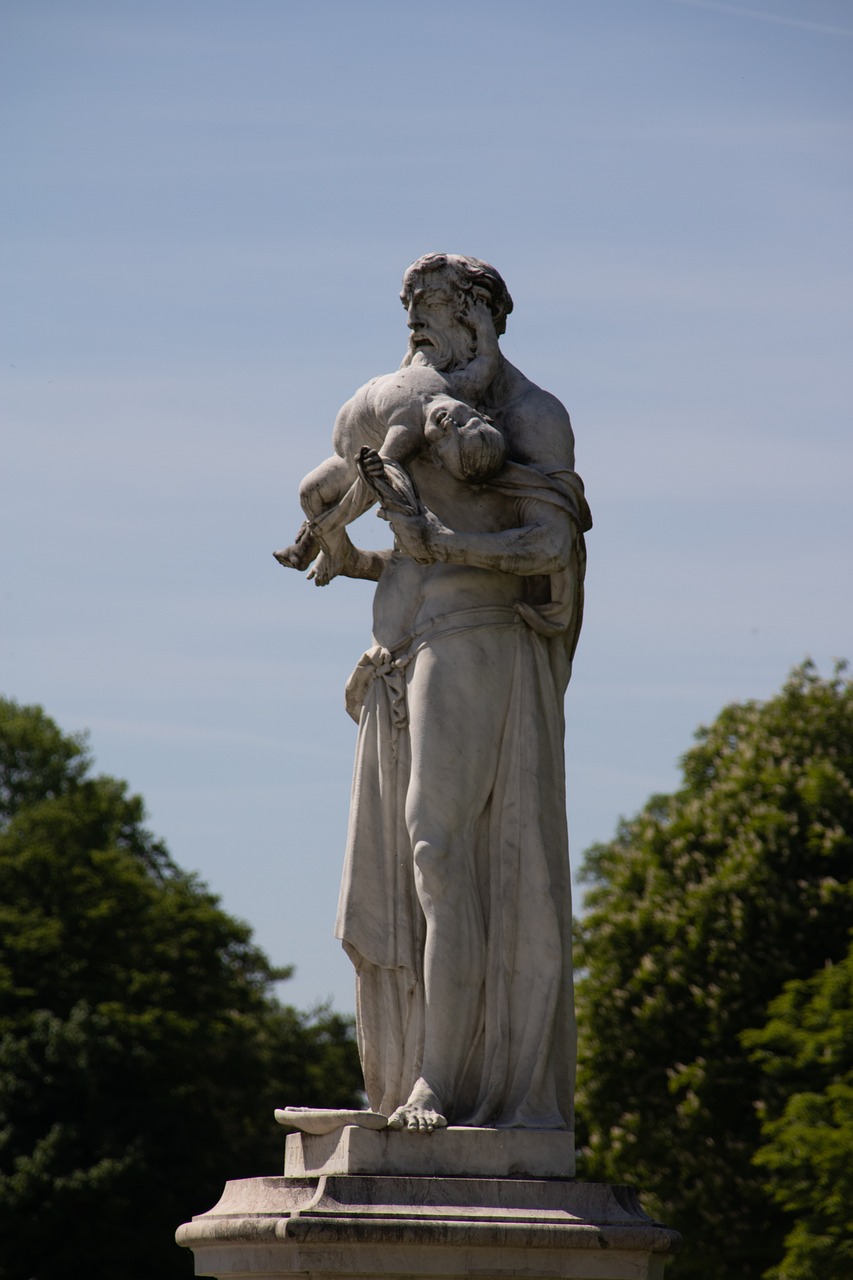The Legacy of Cronus: King of Time
Pronunciation: kroh-nuhs
Other Names: Kronos
Origin: Greece
Cult Center: Athens, Gades, Lebadeia, Olympia
Role: Ruler of the Heavens
Symbols: grain, harpe, scythe, sickle, snake
Wife: Rhea (his twin sister)
Children: Demeter, Hades, Hera, Hestia, Poseidon, Zeus
Who is Cronus?
Cronus, the offspring of Uranus and Gaia, reflects on his solitary reign over the Elysian Fields, a serene realm prepared for the virtuous deceased. His mind wanders to his previous existence in the brooding recesses of Tartarus, sequestered within its imposing bronze walls. “After enduring all this…” he muses, “I have now become the master of time. It is the only thing that remains.” Time is what he now possesses to ponder his past actions, the grudges held against him, and the choices that lie ahead in his newfound freedom.
Origin
In the primordial times, before creation itself, there existed a void called Chaos. From this abyss emerged Erebus, a realm of death, and together with Night, they paved the way for Love and Light and, subsequently, Gaia—the Earth goddess. Gaia gave birth to Uranus, the sky god, and they produced a cadre of 12 divine offspring, including Cronus, who, like his kin, flourished in strength and power.
Family
Cronus’ lineage was storied; his mother, Gaia, bore him along with several siblings of Uranus, each manifesting a distinct force of nature. The siblings, named the Titans, were known for their extraordinary beauty and strength, having garnered parental approval. However, alongside these majestic beings were birthed monstrous entities: the Cyclopes—fearsome beings with a singular eye and hardened dispositions—and the Hecatonchires, which were horrors with 100 arms and 50 heads. Uranus found these latter siblings abominable, consigning them to the dark depths of Tartarus.
The Rise of Cronus
Cronus’ ascension began as he aligned with his mother to release the monstrous Titans from confinement. In a quiet meeting, he overheard Gaia expressing her yearning for a hero among them to challenge Uranus and free her lost progeny. “I will stand by you, mother!” he declared, rallying his resolve to liberate them.
With unrelenting ambition, Cronus fashioned a cunning plan to ambush Uranus during a nightly rendezvous orchestrated by Gaia. Armed with a formidable sickle made of indestructible stone, Cronus prepared to establish his rule over the heavens, for he craved dominion and recognition. The night he ambushed his father, the blood of Uranus merged with the sea, giving rise to various entities, including the gorgeous goddess Aphrodite.
Cronus Assumes Command
Exulting in his newfound power, Cronus declared, “The reign of Cronus commences today!” Yet, looking toward the gates of Tartarus, he beheld a daunting reality: his monstrous siblings, previously unseen, now showcased their grotesque forms. Despite his previous promise to Gaia, their malevolent visages forestalled any notion of release; they posed a grave threat to his throne. Thus, he resolved to imprison them once more, shrouding his inner turmoil beneath a façade of authority.
With Rhea by his side, Cronus initiated what he termed a golden era, where mortals thrived free from laws and vice. Nonetheless, the shadow of his treachery loomed—having betrayed his father and now questioning his destiny, he fretted that he might meet an analogous downfall at the hands of his offspring. Consumed by dread of a rebellion, Cronus took drastic measures against his own children, choosing to swallow each newborn rather than risk the prophecy of a usurper.
A Hidden Threat
As Rhea delivered her children, she could not bear to witness them perish. Unknown to Cronus, she conspired with Gaia to shield her sixth child, Zeus. Rhea presented Cronus with a stone wrapped in swaddling cloth, tricking him into swallowing it instead of their newborn. Meanwhile, Zeus was spirited away to safety, raised in secrecy until he could reclaim his family.
Time slipped by, allowing Cronus to grow complacent. He indulged heavily in wine and celebrations, unaware of the scheme unfolding. Ultimately, Rhea approached Cronus with a flask formulated to induce vomiting. Upon drinking, the king of time collapsed, soon erupting with the swallowed stone and his five children—restored, vibrant, and ready to revolt.
The Fall
Cronus’ reign concluded brutally when Zeus, emboldened by his siblings, slashed open their father, fulfilling the prophecy exacted upon Uranus. Together, Zeus and his siblings grew into a formidable force, ready to challenge their father’s authority and unravel the Titanomachy—a tremendous war heralding monumental shifts among the divine.
In the end, Cronus, initially furious and embittered, joined forces with fellow Titans, yet the tide eventually turned against him. With the release of the previously imprisoned monsters, Zeus’ army triumphed decisively.
Present Legacy
In a surprising twist of fate, Zeus exhibited compassion toward his fallen father, proclaiming his understanding of time’s true mastery. “I set you free from Tartarus, granting you the Elysian Fields as your domain,” Zeus announced, offering Cronus redemption amidst his downfall. No longer haunted by his past, Cronus was transformed into a symbol of benevolence, revered as a god of kindness and generosity. To this day, he embodies “Father Time,” often visualized with a scythe symbolizing the harvest of time.



